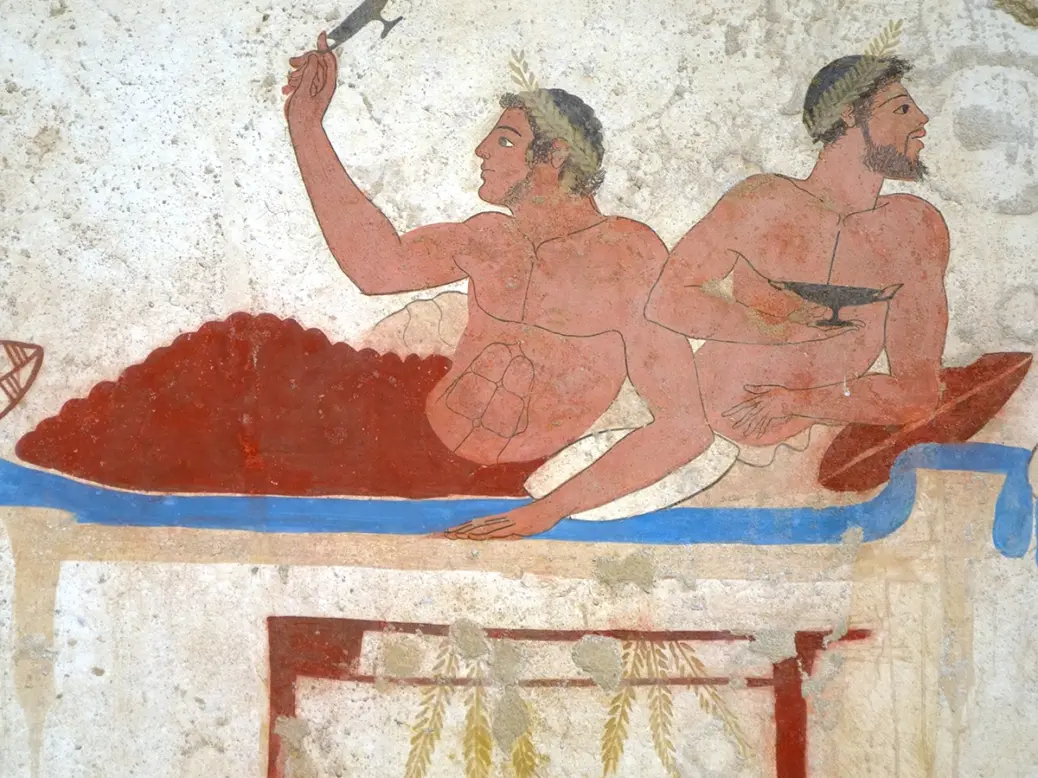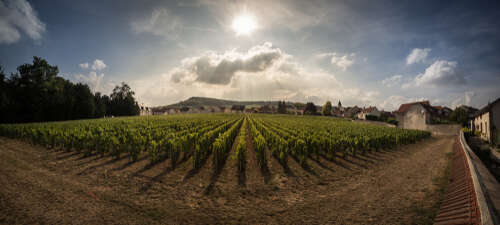
The idea that wine is a drink that makes unique demands on the intellect is still widely held. But is there anything more to this special status than prejudice, asks Stuart Walton.
Ancient tradition has it that wine is the drink for smart people, while beer is the liquid sustenance of dullards. Something of this prejudiced thought lingers on today in western cultures, even in those wine-producing countries where the most basic product that falls way short of classification in the local PDO regulations is often cheaper than bottled beer. Is it simply that the complexity of most wine, its vintage variation and the range of its possible vinification treatments, as distinct from the standard-recipe homogeneity of a beer brand, requires more intellectual discernment than a product that never changes? Or is some deeper cultural paradigm at work here?
Southern intellectuals v northern brutes
In the classical cosmos of Greece and Rome, wine was associated with the entheogenic rituals of the Dionysia and Bacchanalia. It was nothing less than a sacrament, even if its everyday use was considerably less exalted than the intoxication practices that went on in the festivals. By contrast, beer, for all that it too is the gift of a bountiful agricultural divinity, is distinctly more prosaic. It is the drink of the lewdest kind of sensuality, a predilection already apparent in the 4,000-year-old Mesopotamian clay tablets that depict people guzzling beer while in the act of sexual congress.
It helped that beer never significantly took root in Athenian society. As the Dionysian cult was absorbed into the Greek pantheon around the turn of the sixth and fifth centuries BC, the intoxicant with which the god was associated was exclusively the wine that distinguished southern climates from the gelid brutishness of northern peoples. In the Greek cultural habitus that would become the cynosure of elite Roman society, the form of intoxication that beer delivered was nothing more elated than a muddle-headed nodding off, whereas the drunkenness afforded by wine was emblematic of a higher stage of cerebral and spiritual civilization.
These attitudes were susceptible of their own self-reflection in the satirical theater. In The Knights (first performed 424 BC), Aristophanes has the slave Demosthenes declare, in response to a query as to whether anybody can ever come up with a good idea when inebriated: “When men drink, then they are rich and successful and win lawsuits and are happy and help their friends. Quickly, bring me a beaker of wine, so that I may wet my mind and say something clever.” The point is proved when, after a few slugs of good Pramnian, he suggests to his comrade Nikias that they steal the private oracle prophecies of their former comrade turned master Cleon, which reveal that he is destined to become a civic ruler, but will be overthrown by a humble sausage-seller. Enter a humble sausage-seller. A comic plot, born of drunken ingenuity, thereby springs fully formed into being.
More than wine itself
Quite apart from its direct role in ritual observance, wine famously carries about it the aura of a fugitive mystical element, a je-ne-sais-quoi that represents something in the wine that is more than wine itself. In his authoritative study Wine and Society: The Social and Cultural Context of a Drink (2006), Steve Charters MW gives numerous examples of wine-drinkers adducing this elusive element in their experiences with the more illustrious wines. An Australian winemaker talks of her sense of transport on tasting the 1986 vintage of Krug Clos du Mesnil, an experience that transcends everything she knows about the technicalities of wine production. “[G]reat wine does transport us,” she insists, “it takes us somewhere else.”

Glossing her remarks, Charters adds that “such a quasi-spiritual response may not be appropriate for all wines, but at least for some that she drinks it is the case, and it is clearly an experience to be aspired to. This type of response has much in common with the kind of ‘profound experience’ felt by many who explore aesthetic objects, such as music or paintings.” If there is an elusive “something else” to wine, especially the greatest wine, it implicitly requires a finely honed intellect at least to pursue it reflectively, if not finally capture it in words.
Those inclined to take a sceptical view of esoteric myth-making might point out that the elusive something is ethyl alcohol, and the transcending effect of a wine like Clos du Mesnil a function of its costing a king’s ransom, even on release. This is no more than saying, though, that the exquisite beauty of the cello concerto is produced by somebody repeatedly dragging a horsehair bow across four strings of metal alloy, and that the box seats at the concert hall cost an arm and a leg. The entire experience adds up to something more than the sum of its material parts. So it is with wine, the variety and unpredictability of which have been a continuing organic mystery to its drinkers for millennia.
Sociological studies in the 2010s among sample populations in the USA, UK, and Scandinavia found a statistical correlation between higher alcohol consumption (of all drinks) and high IQ. The former doesn’t result in the latter, disappointingly, but perhaps intelligence leads the restless mind to seek intellectually satisfying stimulants. Either that or, as an American food and wine blogger put it, smarter people booze “so we can tolerate everyone else.”






